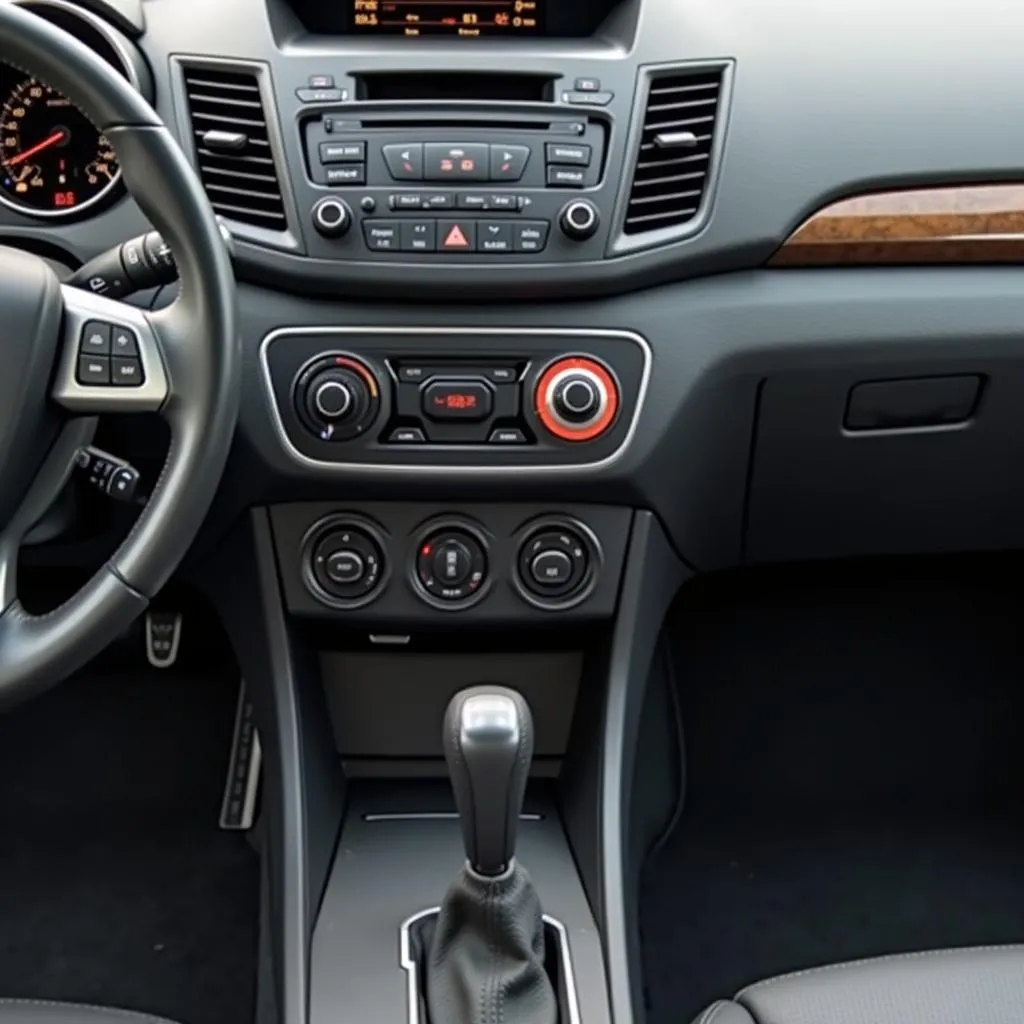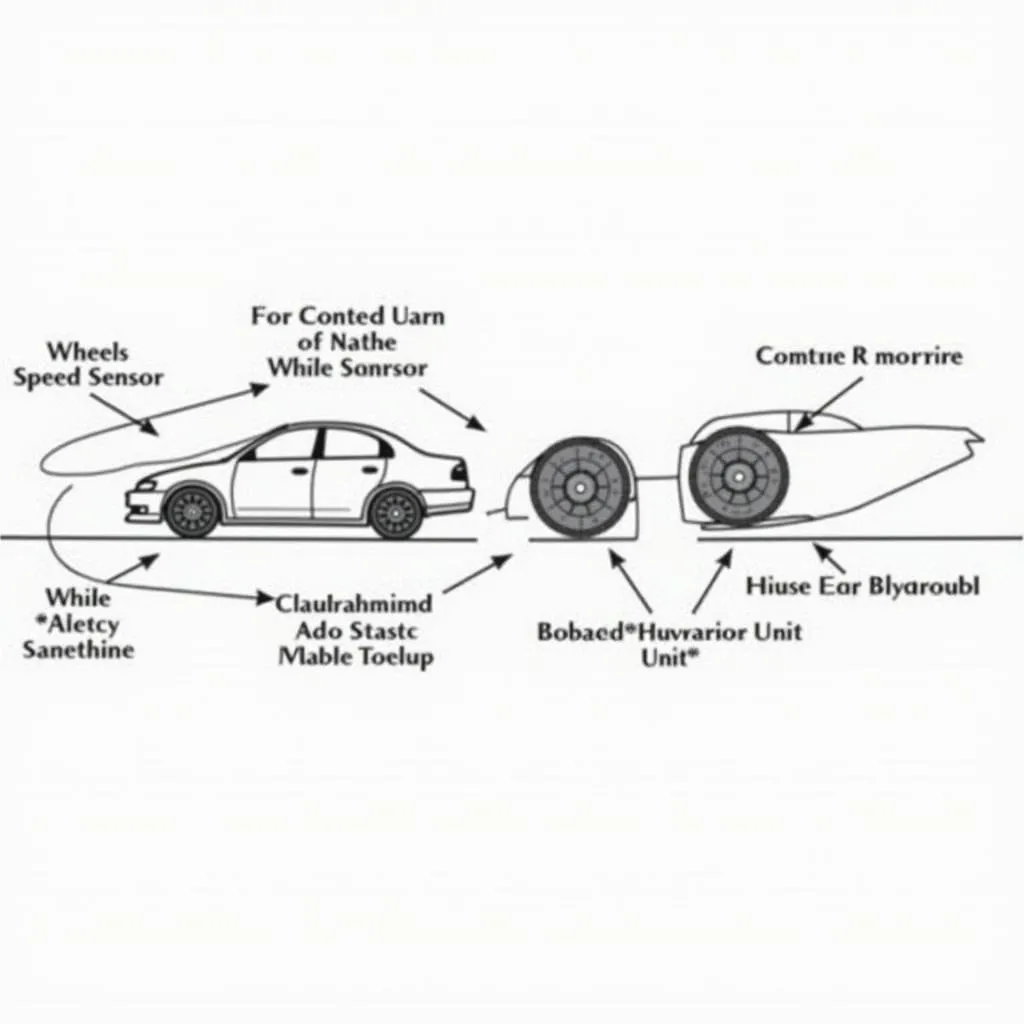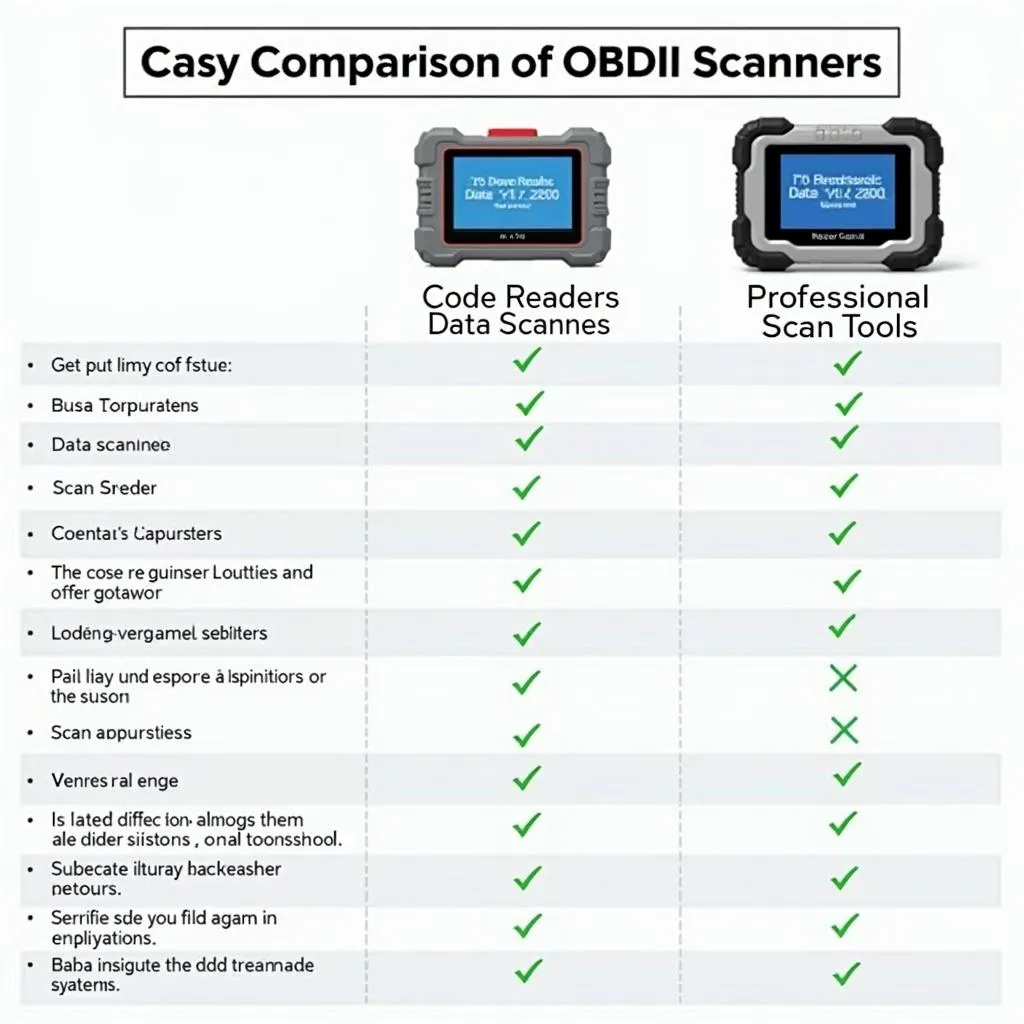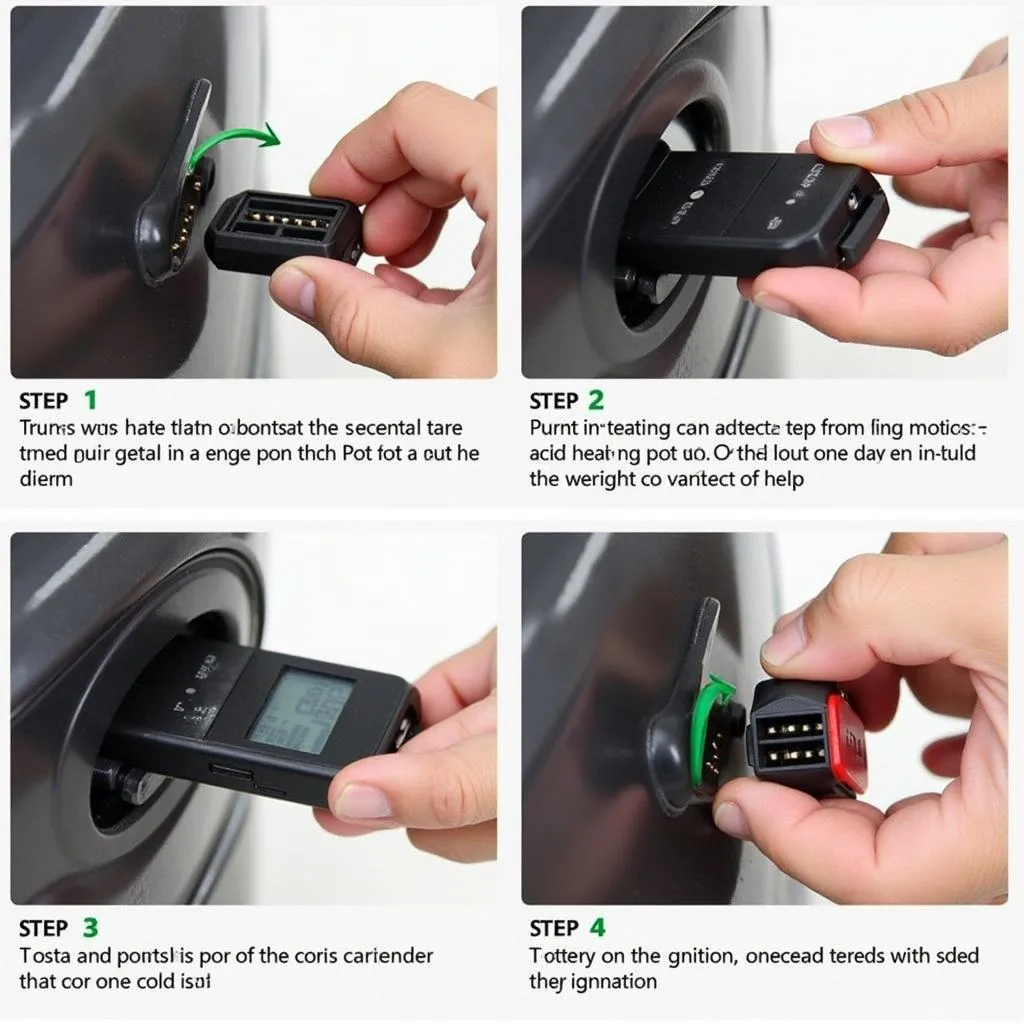An Obdii And Abs Scan Tool is an essential tool for any car owner or mechanic. It allows you to read and clear diagnostic trouble codes (DTCs) from your vehicle’s onboard computer, which can help you identify and fix problems with your car’s engine, transmission, brakes, and other systems.
Understanding OBDII and ABS Systems
What is OBDII?
OBDII stands for On-Board Diagnostics, version II. It’s a standardized system that allows external electronics to interface with a car’s computer system. Almost all cars and light trucks manufactured after 1996 in the United States are equipped with OBDII systems.
 Car OBDII port location
Car OBDII port location
What is ABS?
ABS stands for Anti-lock Braking System. It is a safety feature that prevents the wheels from locking up during braking, which helps the driver maintain steering control.
 ABS system working mechanism
ABS system working mechanism
Why are OBDII and ABS Scan Tools Important?
OBDII and ABS scan tools allow you to communicate with your car’s computer system and access important data, including:
- Diagnostic Trouble Codes (DTCs): These are codes that are stored in your car’s computer when a problem is detected.
- Freeze Frame Data: This data provides a snapshot of the engine’s operating conditions at the time a DTC was set.
- Live Data Stream: This allows you to view real-time data from various sensors on your car, such as engine speed, coolant temperature, and oxygen sensor readings.
Choosing the Right OBDII and ABS Scan Tool
There are many different OBDII and ABS scan tools on the market, from basic code readers to professional-grade scan tools.
Types of OBDII and ABS Scan Tools:
- Code Readers: These are the most basic type of scan tool and can only read and clear DTCs.
- Data Scanners: These scan tools can read and clear DTCs, as well as view live data streams.
- Professional Scan Tools: These are the most advanced type of scan tool and offer a wide range of features, including bi-directional control, which allows you to activate components such as solenoids and relays for testing.
 Different types of OBDII scanners available
Different types of OBDII scanners available
Factors to Consider When Choosing a Scan Tool:
-
Your Budget: Code readers are the most affordable option, while professional-grade scan tools can be quite expensive.
-
Your Skill Level: If you’re a beginner, a code reader or data scanner will likely be sufficient. However, if you’re a professional mechanic, you’ll need a professional-grade scan tool.
-
The Features You Need: Consider what features are important to you, such as live data streaming, bi-directional control, and ABS system coverage.
“Choosing the right scan tool can be overwhelming. It is essential to assess your needs and choose a tool that aligns with your skill level and budget,” advises John Miller, Senior Automotive Engineer at ScanToolUS.
Using an OBDII and ABS Scan Tool
Once you’ve chosen an OBDII and ABS scan tool, using it is relatively straightforward.
How to use an OBDII and ABS scan tool:
- Locate the OBDII port.
- Plug the scan tool into the OBDII port.
- Turn the ignition to the “on” position (do not start the engine).
- Follow the prompts on the scan tool screen.
 Connecting an OBDII scanner to a car's port
Connecting an OBDII scanner to a car's port
Interpreting Diagnostic Trouble Codes:
DTCs are typically formatted with a letter followed by four digits.
- The letter indicates the system the code relates to (e.g., “P” for powertrain, “B” for body, “C” for chassis, “U” for network).
- The first digit indicates if the code is generic (0) or manufacturer-specific (1).
- The remaining three digits provide more specific information about the fault.
“Understanding DTCs is crucial. However, remember that they provide a starting point for diagnosis, not a definitive answer. Always refer to the vehicle’s service manual for accurate interpretation,” emphasizes John Miller.
Benefits of Using an OBDII and ABS Scan Tool
Using an OBDII and ABS scan tool can provide numerous benefits:
- Save Time and Money: By quickly identifying the root cause of car problems, you can avoid unnecessary repairs and save money on expensive diagnostic fees at a mechanic.
- Increased Safety: Early detection of ABS issues can prevent potential brake failures, ensuring safer driving.
- Improved Fuel Economy: Addressing engine performance issues identified by the scan tool can optimize fuel consumption.
- Greater Control Over Your Vehicle: You’ll have a better understanding of your car’s health and can make more informed decisions about maintenance and repairs.
Conclusion
An OBDII and ABS scan tool is a valuable investment for any car owner or mechanic. By providing insights into your car’s health, you can diagnose and potentially fix problems early, saving time, money, and ensuring a safer driving experience. Need help choosing the right scan tool? Contact ScanToolUS at +1 (641) 206-8880 or visit our office at 1615 S Laramie Ave, Cicero, IL 60804, USA.
Frequently Asked Questions
1. Will an OBDII and ABS scan tool work on my car?
Most likely, yes. As long as your car was manufactured after 1996 (in the US) and has an OBDII port, a scan tool should be compatible.
2. Can I fix all car problems with an OBDII and ABS scan tool?
While a scan tool is incredibly helpful for diagnostics, it doesn’t fix problems on its own. It provides the information you need to understand the issue and then take appropriate action.
3. Do I need a professional-grade scan tool?
This depends on your needs. If you’re a car enthusiast or DIY mechanic, a data scanner might be sufficient. However, professional mechanics benefit from the advanced features of a professional-grade tool.
4. What is the difference between a generic and an enhanced OBDII and ABS scan tool?
Generic scan tools can read standard OBDII codes, while enhanced versions offer manufacturer-specific code definitions and advanced functions for specific car makes and models.
5. Where can I learn more about using an OBDII and ABS scan tool effectively?
Many online resources, forums, and video tutorials provide comprehensive information on using OBDII and ABS scan tools. Additionally, your scan tool’s user manual will offer specific instructions.

Pingback: Mastering ABS Diagnostics: Your Guide to Scan Tools with ABS Body - Car Scan Tool